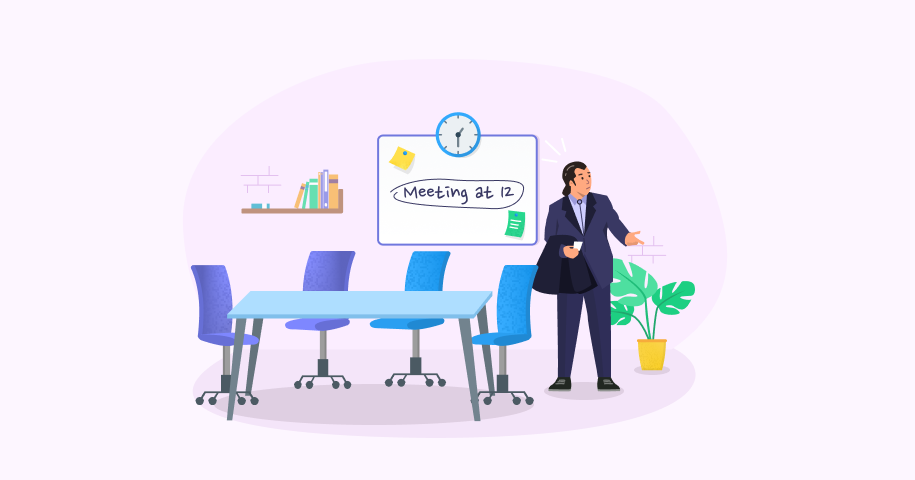Effective Meeting Management Strategies
In today's fast-paced business environment, meetings consume a significant portion of professional time. Learning to manage them effectively is a critical skill that can dramatically improve organizational productivity and morale.
The Meeting Challenge
According to research, professionals spend an average of 31 hours per month in unproductive meetings, costing organizations billions in wasted productivity. Yet meetings remain essential for collaboration, decision-making, and team alignment.
The solution isn't eliminating meetings but transforming them into effective, purposeful sessions that respect everyone's time and deliver tangible results.
Core Principles of Effective Meetings
Purposeful Planning
Every meeting should have a clear purpose and desired outcomes. If you can't articulate why you're meeting or what you hope to achieve, reconsider whether a meeting is necessary.
Thoughtful Participation
Invite only those who need to be there. For each potential participant, ask: Do they need to contribute, make decisions, or be informed about the meeting's content?
Time Consciousness
Respect everyone's time by starting and ending on schedule. Set realistic timeframes for agenda items and stick to them.
Active Facilitation
Guide the discussion to keep it focused, inclusive, and productive. Address side conversations and tangents promptly but respectfully.
Actionable Outcomes
End each meeting with clear action items, assigned responsibilities, and deadlines. Document and distribute these promptly after the meeting.
Pre-Meeting Strategy: Setting the Foundation
Define the Purpose
Ask yourself: What do we need to accomplish? Could this be handled through email or another channel? Be able to complete this sentence: "By the end of this meeting, we will have..."
Create a Focused Agenda
List specific topics with time allocations. Prioritize items by importance. Share the agenda at least 24 hours in advance so participants can prepare.
Select Participants Carefully
Limit attendance to those who need to be there. Consider using the RACI model (Responsible, Accountable, Consulted, Informed) to determine participation.
Prepare Materials in Advance
Distribute any documents, reports, or background information that participants should review before the meeting. This saves valuable discussion time.
Meeting Facilitation: Keeping on Track
Start Strong
- Begin exactly on time, regardless of who's missing
- Briefly restate the meeting's purpose and desired outcomes
- Review the agenda and time allocations
- Set or remind participants of meeting ground rules
Manage the Discussion
- Keep conversations focused on the agenda items
- Encourage participation from everyone, not just the vocal few
- Use a "parking lot" for important but off-topic ideas
- Summarize key points and decisions before moving to the next topic
Handle Common Challenges
- For dominating participants: "Thank you for your insights. Let's hear from others who haven't spoken yet."
- For side conversations: "I notice we have multiple conversations happening. Let's focus on one discussion."
- For tangents: "That's an interesting point that deserves attention. Let's add it to our parking lot and return to our current topic."
End Effectively
- Summarize key decisions and insights
- Review and confirm action items, owners, and deadlines
- Evaluate the meeting's effectiveness (optional but valuable)
- End on time or early—never run late without consent
Post-Meeting Follow-Up: Ensuring Accountability
| Action | Timeline | Purpose |
|---|---|---|
| Distribute meeting minutes | Within 24 hours | Document decisions, capture action items, and provide reference for those who couldn't attend |
| Check in on action items | Midway to deadline | Ensure progress is being made and address any obstacles early |
| Track completion of action items | At deadline | Hold team members accountable and identify patterns of follow-through |
| Solicit feedback | Regularly (monthly or quarterly) | Continuously improve meeting effectiveness based on participant input |
Effective Meeting Minutes Template
Meeting Title: [Title]
Date: [Date] | Time: [Start]-[End] | Location: [Location/Platform]
Attendees: [Names]
Absent: [Names]
Facilitator: [Name] | Note Taker: [Name]
Agenda Items:
- Topic 1
- Key discussion points
- Decisions made
- Topic 2
- Key discussion points
- Decisions made
Action Items:
- [Task] - Assigned to [Name] - Due by [Date]
- [Task] - Assigned to [Name] - Due by [Date]
Next Meeting: [Date] | [Time] | [Location/Platform]
Meeting Technology: Tools for Enhanced Efficiency
Scheduling Tools
- Calendar integration platforms
- Scheduling assistants
- Time zone converters
These tools eliminate the back-and-forth of finding meeting times and automatically send reminders.
Collaboration Platforms
- Video conferencing solutions
- Screen sharing capabilities
- Digital whiteboards
Enable effective remote and hybrid meetings with tools that facilitate visual communication and collaboration.
Productivity Enhancers
- Meeting note templates
- Action item trackers
- Automated transcription
These tools capture meeting content and help track follow-through on commitments made during meetings.
Technology Implementation Tips
- Select technology that addresses your specific meeting challenges
- Ensure all participants have access and know how to use the tools
- Provide training or guidance for new technology adoption
- Have a backup plan for when technology fails
- Regularly evaluate whether your technology solutions are improving meeting effectiveness
Special Meeting Types: Tailored Approaches
Decision-Making Meetings
Ensure all necessary information is available beforehand. Use structured decision-making frameworks like RAPID or RACI. Document the decision, rationale, and implementation plan clearly.
Brainstorming Sessions
Set clear rules that encourage participation and discourage criticism during idea generation. Use techniques like Round Robin or brainwriting to involve everyone. Plan for idea evaluation as a separate phase.
Status Update Meetings
Use a standardized format for updates. Focus on exceptions, challenges, and needs rather than routine progress. Consider whether these could be handled asynchronously through status reports.
Problem-Solving Meetings
Clearly define the problem beforehand. Use structured approaches like the Five Whys or PDCA (Plan-Do-Check-Act). Ensure all stakeholders are represented for comprehensive perspective.
Enhance Your Meeting Management Skills with Al Mithaq Institute
Al Mithaq Institute offers specialized training programs that can help you develop advanced meeting facilitation and management skills:
- Business Administration Diploma with Leadership Modules
- Advanced Listening Skills for Leaders Program
- Strategic Communication Training
- Project Management Certification with Meeting Facilitation Components
FAQ: Effective Meeting Management
How do I handle consistently late participants?
Start meetings on time regardless of who's missing. Don't recap for latecomers during the meeting; this rewards lateness. Instead, have a system for them to catch up independently. For chronic offenders, address the issue privately rather than embarrassing them in group settings.
What's the ideal meeting length?
Research suggests that optimal meeting length depends on the purpose: 15-30 minutes for updates, 45-60 minutes for discussion and problem-solving, and 90-120 minutes for strategic planning or complex decision-making. However, attention typically wanes after 45 minutes, so consider incorporating breaks for longer meetings.
How can I improve participation in virtual meetings?
Use interactive features like polls, breakout rooms, and chat functions. Call on people by name to contribute. Establish clear protocols for indicating when someone wants to speak. Consider rotating facilitation roles. Send materials in advance and use visual aids to maintain engagement.
What's the best way to handle conflicts during meetings?
Acknowledge differing perspectives as valuable. Focus on interests rather than positions. Use techniques like parking lot issues that can't be resolved immediately. For serious conflicts, consider taking a brief break or scheduling a separate meeting focused specifically on resolution.
How do I know if my meetings are effective?
Regularly assess meetings using metrics like: Was the purpose achieved? Were decisions made and actions assigned? Did we stay on time? Was everyone engaged? Consider using brief post-meeting surveys or periodic check-ins about meeting satisfaction. Track action item completion rates as a measure of meeting impact.
Conclusion
Effective meeting management is a leadership skill that pays enormous dividends in productivity, engagement, and organizational culture. By implementing thoughtful pre-meeting planning, skilled facilitation, and consistent follow-up, you can transform meetings from dreaded time-wasters to valuable collaborative experiences.
Remember that meeting effectiveness is an ongoing process of refinement. Regularly solicit feedback, experiment with new approaches, and adjust your strategies based on what works best for your team and organization.
With practice and intention, you can lead meetings that people actually want to attend—sessions that energize rather than drain participants and that move your collective work forward in meaningful ways.
Ready to transform your meeting management skills?
Explore Al Mithaq Institute's specialized courses in Business Administration, Leadership, and Communication to enhance your professional capabilities.
View Our Courses






